Trek Lexa SLX: First ride review
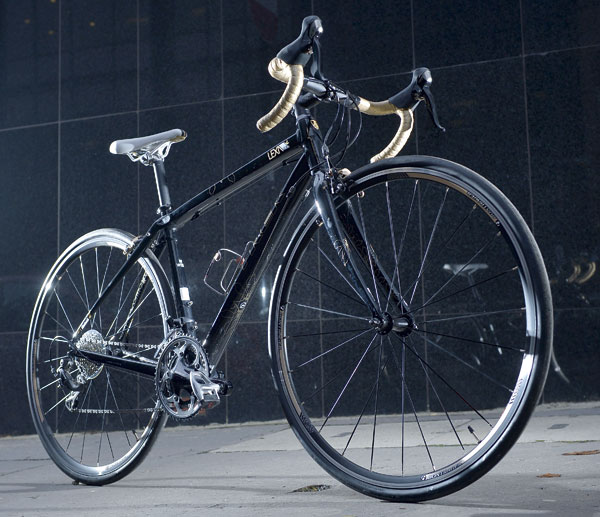
Trek Lexa SLX
You can trust Cycling Weekly.

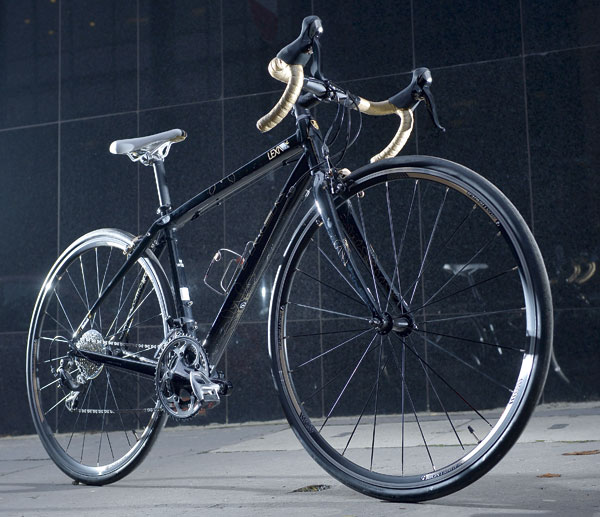
Words Derri Dunn | Photos Rupert Fowler
Last year, Trek’s ground-breaking Domane race bike made tidal waves on the pro scene. With its IsoSpeed section set in a carbon frame, the back end was decoupled, making for a much more comfortable and effective endurance bike for racing on tough terrain, like the cobbled Classics of Belgium.
We just love trickle-down technology here at Cycling Active, so we were pretty delighted to spot aluminium Domanes at Trek’s new product launch for 2013, starting at just £1,000. But something’s missing — there are women-specific carbon Domanes, but has Trek forgotten the girls with shallower pockets and aluminium aspirations?
Thankfully not. It turns out there is a women’s aluminium Domane and here it is — it’s called the Lexa SLX. The reason for this Domane travelling incognito is that Trek wants to give its women’s bikes their own distinct identity, rather than just making smaller versions of the unisex models in different colours. Accordingly, the Lexa SLX does not have an identically specced Domane stablemate, though it’s very similar to the Domane 2.3, but without the carbon seatpost and costing £50 less, as you’d expect.
Classy, cool and comfy
Domane technology apart, I’ve long been a fan of Trek’s take on women-specific design. It’s adept at tailoring all the right bits — bar, saddle and of course frame size — without doing anything too peculiar to the geometry of the bike in the process. The extremely compact Bontrager VR-S handlebar is probably my all-time favourite women’s bar and fantastic if your hands are small and your finger reach short. I also like the flat, dense compound of the women’s saddle, with nothing too complicated or fussy going on, but it does look and feel a little low-rent compared to the overall finish of the rest of the bike.
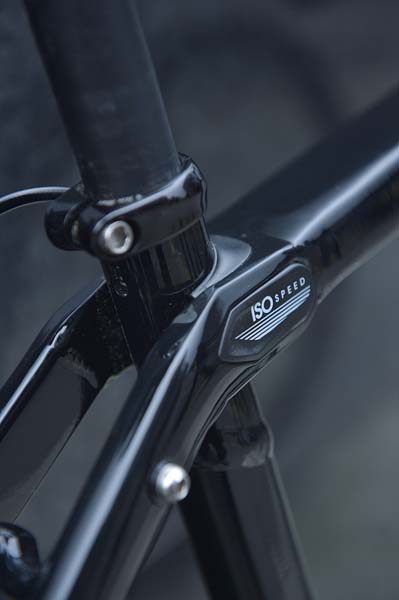
But that’s mostly because the overall finish of the rest of the Lexa SLX is really rather swish. Black and gold makes quite a statement. Metallic bar tape isn’t for shrinking violets, and in this case it walks a fine line between flash and gaudy, happily managing to just stay the right side of that line, thanks to understated frame graphics.
And of course there’s nothing wrong with a bike looking a bit brazen, as long as there’s plenty of go to back up the show, and the ride of the Lexa SLX was no disappointment. I can’t say I noticed any groundbreaking new sensation from the IsoSpeed area, but this is probably part of its strength — it is, as Trek promises, very comfortable. It would be disconcerting if ‘decoupling’ the seat tube from the rest of the bike led to any great movement in the frame, but power transfer still felt plenty direct.
Overall, the frame feel is nimble and compliant, but there’s no sensation of harshness at the fork or saddle end. You could ride all day over potholed urban roads and not feel too jangled.
For all its brooding good looks and rather fancy technology, the Lexa SLX has still been positioned firmly within Trek’s ‘endurance’ — read ‘sportive’ — category and accordingly the geometry sports a relatively high front end, though if you’re a nervy descender like me simply removing a couple of spacers from under the stem positions more of your weight forward for better stability when the road points down.
Practical performer
Though it’s pricy and special enough to be a ‘best’ bike, the Lexa SLX actually makes a pretty nifty fast commute bike. Its angles are relaxed enough to allow you to find a sensible posture for riding in traffic, and it has removable fender mounts on the fork — so it can be your ride to work bike but still look the part when you’re leaving them for dust at sportives and club rides.
In short, it’s a really good inbetweener; a good bridging bike for women who want a bit more than just a bargain basement heavy winter hack, but still don’t want to hand over thousands for a precious carbon super-racer. It’s a little bit special, but still utterly practical when it comes to all the real riding you could throw at it.
Of course, unless you’re making some kind of statement about your Olympian credentials, you might want to swap that glitzy bar tape for something more demure so it looks the part if the Monday to Friday rat run is your only racetrack.
Specification
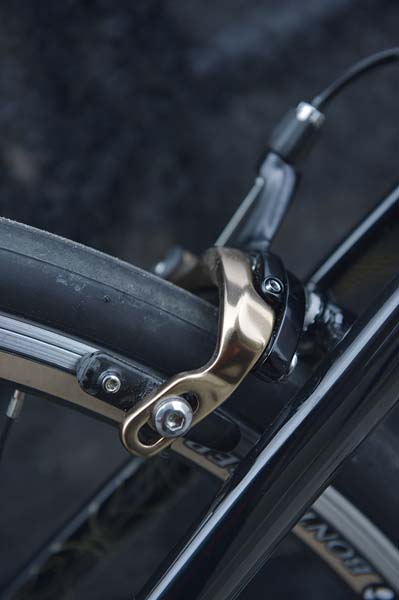
Trek Lexa SLX
£1,150
Frame 200 Series Alpha aluminium
Fork Trek IsoSpeed carbon
Groupset Shimano 105 shifters, front and rear; Shimano Tiagra 50/34 chainset and 12-30t cassette
Wheels Bontrager aluminium
Tyres Bontrager R1 700 x 25c
Saddle Bontrager Affinity 1 WSD
Stem Bontrager Race Lite
Seatpost Bontrager Race Lite
Handlebar Bontrager VR-S
Sizes 47, 50, 52, 54, 56cm
Size tested 50cm
Weight 9kg (19.6lb)
Alternative
Trek Domane 2.0 £1,000
If you have the misfortune of being male or only having £1,000 to spend, fear not, Trek’s unisex Domane 2.0 enjoys all the same lovely IsoSpeed frame technology as our Lexa SLX. To trim the fat to the magic one-grand mark it sports a Shimano Tiagra triple groupset. With sizes going down to 50cm, all but the shortest women will also be able to enjoy the Domane 2.0, though of course you won’t get the benefit of the women-specific Bontrager bars and saddle.

Thank you for reading 20 articles this month* Join now for unlimited access
Enjoy your first month for just £1 / $1 / €1
*Read 5 free articles per month without a subscription

Join now for unlimited access
Try first month for just £1 / $1 / €1
Get The Leadout Newsletter
The latest race content, interviews, features, reviews and expert buying guides, direct to your inbox!

Nigel Wynn worked as associate editor on CyclingWeekly.com, he worked almost single-handedly on the Cycling Weekly website in its early days. His passion for cycling, his writing and his creativity, as well as his hard work and dedication, were the original driving force behind the website’s success. Without him, CyclingWeekly.com would certainly not exist on the size and scale that it enjoys today. Nigel sadly passed away, following a brave battle with a cancer-related illness, in 2018. He was a highly valued colleague, and more importantly, an exceptional person to work with - his presence is sorely missed.
-
 'It took everything' - Puck Pieterse outclimbs Demi Vollering to win La Flèche Wallonne
'It took everything' - Puck Pieterse outclimbs Demi Vollering to win La Flèche WallonneDutch 22-year-old shows Classics pedigree with first one-day victory
By Tom Davidson Published
-
 Tadej Pogačar flies to dominant victory at La Flèche Wallonne
Tadej Pogačar flies to dominant victory at La Flèche WallonneSlovenian takes second win at Belgian classic ahead of Kévin Vauquelin and Tom Pidcock
By Tom Thewlis Published
-
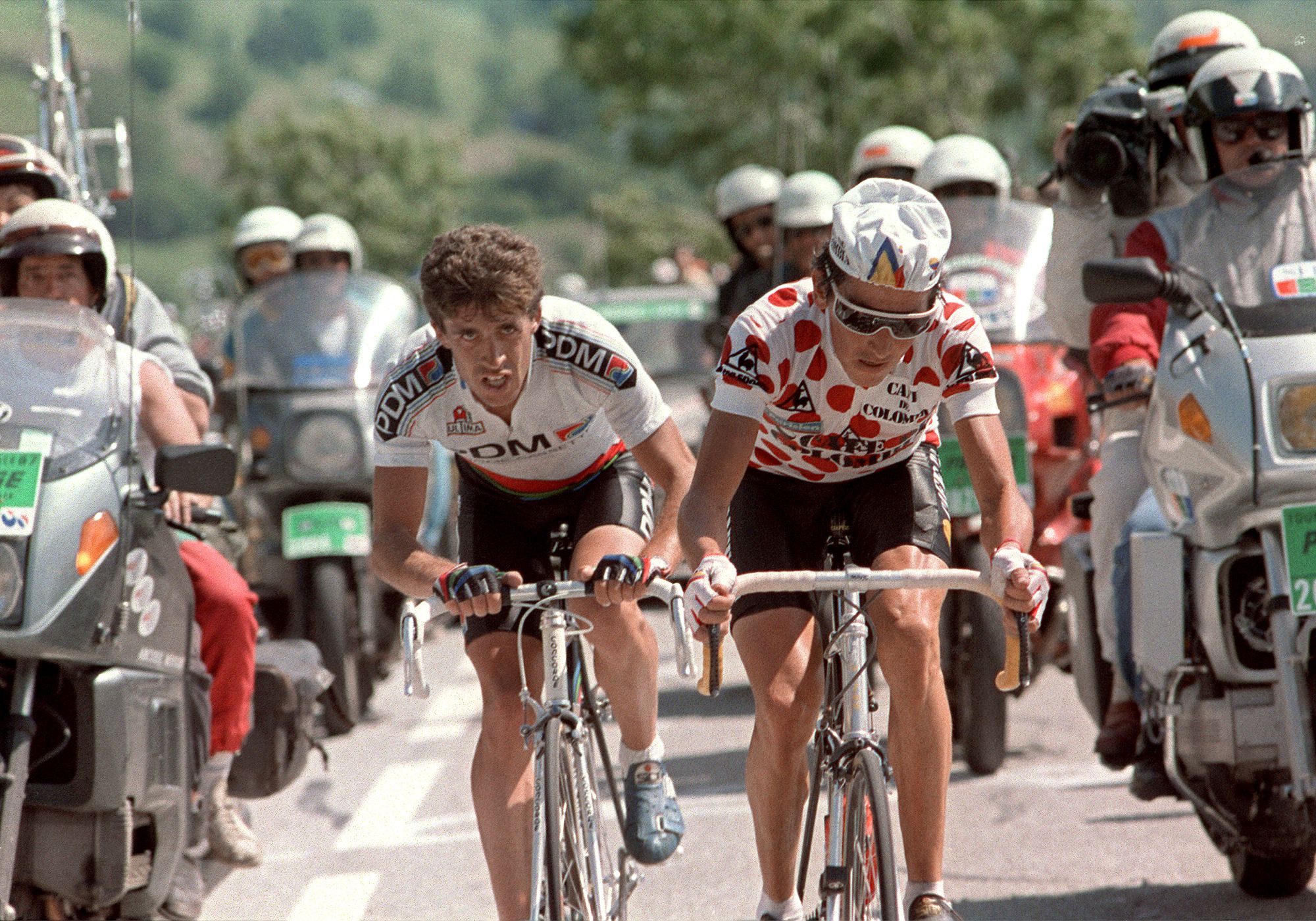 Colombian climbing star and former Vuelta a España winner Lucho Hererra could be investigated over murders of four people
Colombian climbing star and former Vuelta a España winner Lucho Hererra could be investigated over murders of four peopleA judge has called for an investigation into the former Vuelta winner who is alleged to have worked with paramilitary groups in Colombia
By Tom Thewlis Published